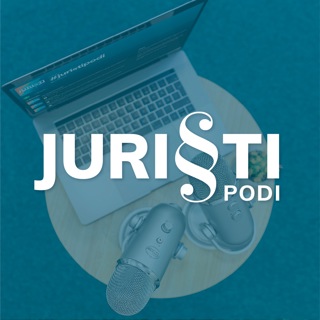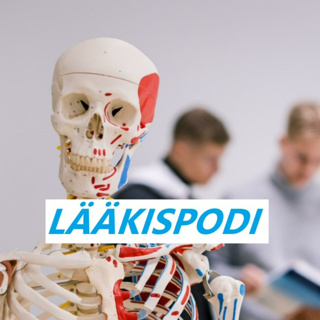
1106: Amanda Ripley | The Secrets to Surviving an Unthinkable Disaster
Want to survive a disaster? The Unthinkable author Amanda Ripley explains why knowing your neighbors matters more than hoarding supplies. What We Discuss with Amanda Ripley: Contrary to popular belief, people rarely panic in disasters. Instead, the biggest challenge is often lethargy and denial — people tend to freeze or remain passive rather than exhibit chaotic behavior. This denial phase can be deadly as it delays taking necessary action. In most disasters, the people who save lives are regular civilians, not first responders (who often can't arrive quickly enough). However, this dynamic is being threatened by declining trust — not just in institutions, but between neighbors and community members. Our risk assessment is driven more by emotion ("dread") than rational calculation. This explains why people often fear the wrong things — like choosing to drive instead of fly, even though driving is statistically much more dangerous. In disasters, humans experience significant sensory and cognitive impairments: vision can narrow by up to 70%, people can temporarily lose sight or hearing, and time perception becomes distorted. This is why having prior training and clear protocols is crucial. The good news is that disaster response skills can be learned through simple, practical steps: Practice box breathing (4 counts in, hold 4, out 4, hold 4) to stay calm under stress, take free CERT (Community Emergency Response Team) training in your area, and create basic emergency plans like identifying exits in buildings you frequent. These small preparations can make a huge difference in a crisis. And much more... Full show notes and resources can be found here: jordanharbinger.com/1106 And if you're still game to support us, please leave a review here — even one sentence helps! Consider including your Twitter handle so we can thank you personally! This Episode Is Brought To You By Our Fine Sponsors: jordanharbinger.com/deals Sign up for Six-Minute Networking — our free networking and relationship development mini course — at jordanharbinger.com/course! Subscribe to our once-a-week Wee Bit Wiser newsletter today and start filling your Wednesdays with wisdom! Do you even Reddit, bro? Join us at r/JordanHarbinger!See Privacy Policy at https://art19.com/privacy and California Privacy Notice at https://art19.com/privacy#do-not-sell-my-info.
21 Tammi 1h 29min

1105: DNA | Skeptical Sunday
From criminal cases to designer babies, DNA is reshaping humanity's future. Michael Regilio unravels this double helix of discovery on Skeptical Sunday! Welcome to Skeptical Sunday, a special edition of The Jordan Harbinger Show where Jordan and a guest break down a topic that you may have never thought about, open things up, and debunk common misconceptions. This time around, we’re joined by skeptic, comedian, and podcaster Michael Regilio! On This Week's Skeptical Sunday, We Discuss: DNA is simultaneously microscopic and massive in scale — while coiled up tightly in each cell's nucleus, if you unraveled all the DNA in a single human body and laid it end-to-end, it would stretch to the sun not once, but 600 times! This mind-bending fact perfectly illustrates how we're all walking around with an astronomical amount of genetic information packed into our cells. The ethical implications of DNA databases are more complex than a double helix — even if you never take a genetic test yourself, your relatives' DNA decisions can expose your genetic information. It's like playing genetic poker where someone else can accidentally show your hand. This raises serious concerns about privacy, insurance discrimination, and how genetic information could be weaponized by bad actors. CRISPR technology has opened Pandora's genetic toolbox — while it offers incredible potential for treating diseases like sickle cell anemia, it also enables the possibility of "designer babies" and genetic enhancements that could create new forms of social inequality. We're essentially writing code for humans now, but without a clear user manual for the consequences. DNA evidence has revolutionized criminal justice — but it took decades to establish proper standards and protocols. From its first use in catching Colin Pitchfork (whose villainous name seems almost too on-the-nose) to modern genetic genealogy solving cold cases, DNA has become the ultimate witness that never forgets and never lies. Understanding and working with DNA is becoming increasingly accessible and beneficial — from personalized medicine to ancestry exploration to crop improvements, we all have opportunities to engage with and benefit from DNA science. By staying informed about genetic advances while thoughtfully considering their implications, we can help shape a future where this powerful technology serves humanity's best interests rather than our darker impulses. Connect with Jordan on Twitter, Instagram, and YouTube. If you have something you'd like us to tackle here on Skeptical Sunday, drop Jordan a line at jordan@jordanharbinger.com and let him know! Connect with Michael Regilio at Twitter, Instagram, and See Privacy Policy at https://art19.com/privacy and California Privacy Notice at https://art19.com/privacy#do-not-sell-my-info.
19 Tammi 44min

1104: Rich Abuser Admits Crime But Won't Spare a Dime | Feedback Friday
Religious pressure to forgive meets decades-old family assault. When the perpetrator has wealth but won't aid healing, what's next? It's Feedback Friday! And in case you didn't already know it, Jordan Harbinger (@JordanHarbinger) and Gabriel Mizrahi (@GabeMizrahi) banter and take your comments and questions for Feedback Friday right here every week! If you want us to answer your question, register your feedback, or tell your story on one of our upcoming weekly Feedback Friday episodes, drop us a line at friday@jordanharbinger.com. Now let's dive in! On This Week's Feedback Friday, We Discuss: Your cousin and her daughter were both sexually assaulted by members of the same family, decades apart. Now the perpetrator is wealthy, dismissive, and unwilling to help with therapy costs while flaunting his success. There's a complex web of family dynamics and religious pressure to "forgive and forget" — but should justice have an expiration date? [Thanks to attorney Corbin Payne for helping us answer this one!] You're facing a performance review where you'll need to discuss a new company protocol that's making your work less efficient and more demanding. The change wasn't your supervisor's call, but you'll have to navigate this diplomatic minefield carefully. How do you voice concerns without burning bridges? Your brother lives five minutes away but weaponizes access to your beloved niece, only allowing visits when it suits him. He claims you're "obsessed" with her and don't care about him — though your relationship was strained long before she arrived. Is there a solution you're not seeing, or are you destined to watch her grow up from a distance? Recommendation of the Week: The Sun-a-Wear UV Tracker Your tech startup is opening a new office in your hometown, presenting a golden opportunity for growth. But as you attend networking events filled with CTOs and investors, imposter syndrome is hitting hard. You want to make meaningful connections but feel you have nothing to offer these power players. Could you be more valuable than you think? Have any questions, comments, or stories you'd like to share with us? Drop us a line at friday@jordanharbinger.com! Connect with Jordan on Twitter at @JordanHarbinger and Instagram at @jordanharbinger. Connect with Gabriel on Twitter at @GabeMizrahi and Instagram @gabrielmizrahi. Full show notes and resources can be found here: jordanharbinger.com/1104 See Privacy Policy at https://art19.com/privacy and California Privacy Notice at https://art19.com/privacy#do-not-sell-my-info.
17 Tammi 1h 19min

1103: Marcel Dirsus | How Tyrants Fall and Nations Survive
What can a country do to shake its pesky dictator problem? How Tyrants Fall author Marcel Dirsus is here to explain why it's difficult but not impossible! What We Discuss with Dr. Marcel Dirsus: Dictators are trapped on what Dr. Marcel Dirsus calls "the dictator's treadmill" — they can't safely step down because they've committed too many crimes to retire peacefully, but must keep running to survive. Statistics show 69% of dictators end up imprisoned, exiled, or killed. Dictators weaken their own militaries through "coup-proofing" — creating multiple competing security forces and promoting based on loyalty rather than competence. While this helps prevent coups, it makes their forces less effective against external threats. Natural resources like oil and diamonds help dictators maintain power because they can generate wealth without requiring an educated population or competent administrators. This allows them to focus on loyalty over capability in their government. Most dictators who fall (about 80%) are replaced by new dictators rather than democracies. Simply removing a dictator often leads to civil war or another authoritarian regime rather than democratic reform. There are effective, peaceful ways to gradually weaken dictatorships and empower democracy, such as supporting independent journalism, providing communication networks, and training civil society groups. These methods have historically helped create positive change without the catastrophic risks of violent intervention. And much more... Full show notes and resources can be found here: jordanharbinger.com/1103 And if you're still game to support us, please leave a review here — even one sentence helps! Consider including your Twitter handle so we can thank you personally! This Episode Is Brought To You By Our Fine Sponsors: jordanharbinger.com/deals Sign up for Six-Minute Networking — our free networking and relationship development mini course — at jordanharbinger.com/course! Subscribe to our once-a-week Wee Bit Wiser newsletter today and start filling your Wednesdays with wisdom! Do you even Reddit, bro? Join us at r/JordanHarbinger!See Privacy Policy at https://art19.com/privacy and California Privacy Notice at https://art19.com/privacy#do-not-sell-my-info.
14 Tammi 1h 16min

1102: College vs. Trades | Skeptical Sunday
Want to make bank without the bank breaking you? Anglo-Saxon poetry enthusiast Nick Pell weighs trades against degrees on this week's Skeptical Sunday! On This Week's Skeptical Sunday, We Discuss: While college graduates earn more on average ($77,000/year) compared to trade school graduates ($67,000/year) and high school graduates ($47,000/year), this comes with significant student loan debt — averaging $37,000 for a bachelor's degree. There's a severe shortage of skilled trade workers in America, with examples like a deficit of 500,000 plumbers and an anticipated shortage of 1.9 million manufacturing jobs, suggesting strong job security and demand in these fields. Advanced degrees show diminishing returns — a master's degree costs an average of $65,000 and only provides about a 16% salary increase, while a doctorate costs $127,000 for grad school alone with relatively modest income gains. The college versus trade school decision isn't purely financial — it should factor in personal aptitudes, desired lifestyle, and how someone wants to spend roughly one-third of their adult life working. There are multiple paths to success, and you can make informed choices by: taking a "gap year" to work and explore interests, completing general education requirements at more affordable community colleges, researching program costs versus expected salaries, and considering apprenticeships which have doubled since 2013 and offer paid training opportunities. Connect with Jordan on Twitter, Instagram, and YouTube. If you have something you'd like us to tackle here on Skeptical Sunday, drop Jordan a line at jordan@jordanharbinger.com and let him know! Full show notes and resources can be found here: jordanharbinger.com/1102 And if you're still game to support us, please leave a review here — even one sentence helps! Consider including your Twitter handle so we can thank you personally! This Episode Is Brought To You By Our Fine Sponsors: jordanharbinger.com/deals Sign up for Six-Minute Networking — our free networking and relationship development mini course — at jordanharbinger.com/course! Subscribe to our once-a-week Wee Bit Wiser newsletter today and start filling your Wednesdays with wisdom! Do you even Reddit, bro? See Privacy Policy at https://art19.com/privacy and California Privacy Notice at https://art19.com/privacy#do-not-sell-my-info.
12 Tammi 52min

1101: Church, Steeple, and the Trafficked People | Feedback Friday
That slick businessman who bought your local church? His "art gallery" promises are looking more like a front for something sinister. It's Feedback Friday! And in case you didn't already know it, Jordan Harbinger (@JordanHarbinger) and Gabriel Mizrahi (@GabeMizrahi) banter and take your comments and questions for Feedback Friday right here every week! If you want us to answer your question, register your feedback, or tell your story on one of our upcoming weekly Feedback Friday episodes, drop us a line at friday@jordanharbinger.com. Now let's dive in! On This Week's Feedback Friday: You live next to a historic church that was recently sold to a charismatic businessman with grand plans for an art gallery. But whispers of human trafficking and suspicious activities are swirling through your small town like autumn leaves. What's really happening behind those hallowed walls? You're locked out of your house, and the locksmith who finally shows up hits you with a bill that could buy a small yacht. But the real lock that needs picking? Your paralyzing fear of conflict. How do you build the backbone to stand up for yourself? Your neurodivergent 12-year-old son has been running a thriving business from your condo lobby, delighting residents with his entrepreneurial spirit. But now the building board is throwing bureaucratic thunderbolts his way. Can creativity trump red tape? You're crushing your career even on four hours of sleep with a six-month-old at home. But now you're caught in that classic new-parent paradox: how to keep climbing the corporate ladder while changing diapers? There's got to be a way to have it all, right? Recommendation of the Week: On Call A successful executive shares a story about dinner table epiphanies, early morning trains, and the cosmic calculus of how we spend our precious time. What he learned about the mathematics of moments will make you reconsider your own life's algorithm. Have any questions, comments, or stories you'd like to share with us? Drop us a line at friday@jordanharbinger.com! Connect with Jordan on Twitter at @JordanHarbinger and Instagram at @jordanharbinger. Connect with Gabriel on Twitter at @GabeMizrahi and Instagram @gabrielmizrahi. Full show notes and resources can be found here: jordanharbinger.com/1101 And if you're still game to support us, please leave a review here — even one sentence helps! Consider...See Privacy Policy at https://art19.com/privacy and California Privacy Notice at https://art19.com/privacy#do-not-sell-my-info.
10 Tammi 1h 17min

1100: James Patterson | Building the Architecture of Addictive Fiction
From advertising exec to America's storyteller-in-chief: prolific author James Patterson shares his blueprint for turning creative chaos into literary gold. What We Discuss with James Patterson: Highly prolific author James Patterson maintains success through daily consistency — writing 350-365 days per year, getting up at 5:30 a.m., and viewing his work as "playing" rather than working. This dedication has led to over 400 million books sold. James' creative process involves extensive outlining (60-80 pages) but staying flexible within that structure. He keeps multiple projects (around 30) going simultaneously and moves between them if he gets stuck on one. James' breakthrough moment came when he realized he was "on the wrong side of the highway" — stuck in advertising traffic heading to a job he didn't want, while watching others freely driving in the opposite direction. This led him to leave his successful advertising career to write full-time. James' writing philosophy focuses on respecting the reader's time by following Leonard Elmore's advice to "leave out the parts people skip" and ensuring each chapter compels readers to turn the page. He emphasizes storytelling over showing off literary prowess. Anyone can improve their writing and creativity by breaking tasks into manageable pieces: if you're stuck, skip to another section and come back later; don't get too attached to any particular piece of writing; and remember that first drafts don't need to be perfect — you can always revise and refine your work as you go along. And much more... Full show notes and resources can be found here: jordanharbinger.com/1100 And if you're still game to support us, please leave a review here — even one sentence helps! Consider including your Twitter handle so we can thank you personally! This Episode Is Brought To You By Our Fine Sponsors: jordanharbinger.com/deals Sign up for Six-Minute Networking — our free networking and relationship development mini course — at jordanharbinger.com/course! Subscribe to our once-a-week Wee Bit Wiser newsletter today and start filling your Wednesdays with wisdom! Do you even Reddit, bro? Join us at r/JordanHarbinger!See Privacy Policy at https://art19.com/privacy and California Privacy Notice at https://art19.com/privacy#do-not-sell-my-info.
7 Tammi 58min

1099: Syria | Out of the Loop
Assad fled, rebels took over, and Syria changed overnight. Intelligence analyst Ryan McBeth maps out who won, who lost, and what's next on Out of the Loop! Welcome to what we're calling our "Out of the Loop" episodes, where we dig a little deeper into fascinating current events that may only register as a blip on the media's news cycle and have conversations with the people who find themselves immersed in them. On This Episode of Out of the Loop: After over a decade of civil war, Syrian President Bashar al-Assad fled to Moscow when his regime collapsed following a rapid 10-day offensive at the end of 2024. The collapse was accelerated by Hezbollah withdrawing forces to fight Israel, leaving Assad's already weak army severely undermanned. The new controlling force in Syria is HTS (Hayat Tahrir al-Sham), led by Hamed al-Golani. While HTS was formerly affiliated with Al-Qaeda, they have since distanced themselves and are showing potentially moderate tendencies, focusing on restoring basic services rather than implementing strict religious law. Turkey emerged as a major winner in this scenario, having strategically supported various rebel groups that helped bring down Assad's regime. Meanwhile, Russia and Iran are significant losers - Russia lost important Mediterranean naval access, and Iran lost a crucial supply route to Hezbollah in Lebanon. The Syrian civil war involved over 70 different factions, but they could be broadly categorized into three main anti-Assad groups: Islamist groups (like HTS), Kurdish groups (supported by the US), and moderate opposition groups. This complex web of alliances and conflicts made the situation particularly difficult to resolve. Despite the country's painful history, Syria has immense potential for rebuilding and renewal. The country was historically known for its rich culture, welcoming people, incredible food, and archaeological treasures. The current focus on restoring basic services and apparent willingness of different factions to cooperate suggests that with proper support and governance, Syria could begin healing and rebuilding its vibrant society. Connect with Jordan on Twitter, on Instagram, and on YouTube. If you have something you'd like us to tackle here on an Out of the Loop episode, drop Jordan a line at jordan@jordanharbinger.com and let him know! Connect with Ryan McBeth at his website, Twitter, Instagram, and on YouTube. If you'd like to stay on top of what's happening in the world, subscribe to Ryan's Substack! Full show notes and resources can be found here: jordanharbinger.com/1099 See Privacy Policy at https://art19.com/privacy and California Privacy Notice at https://art19.com/privacy#do-not-sell-my-info.
5 Tammi 55min






















